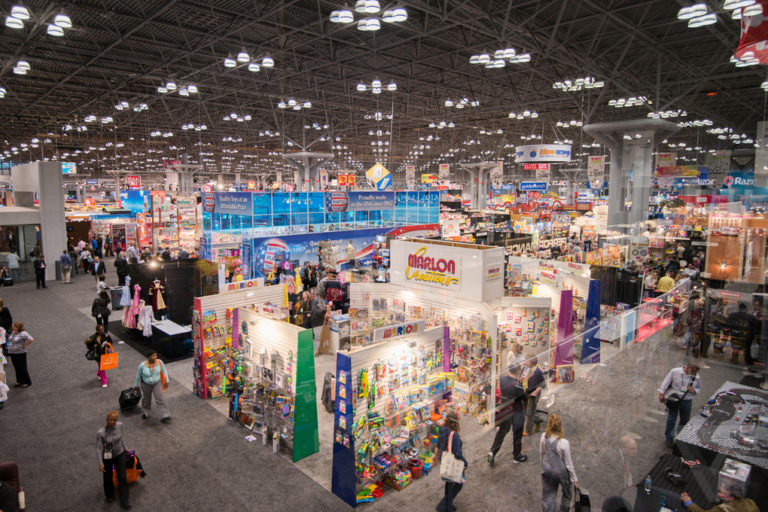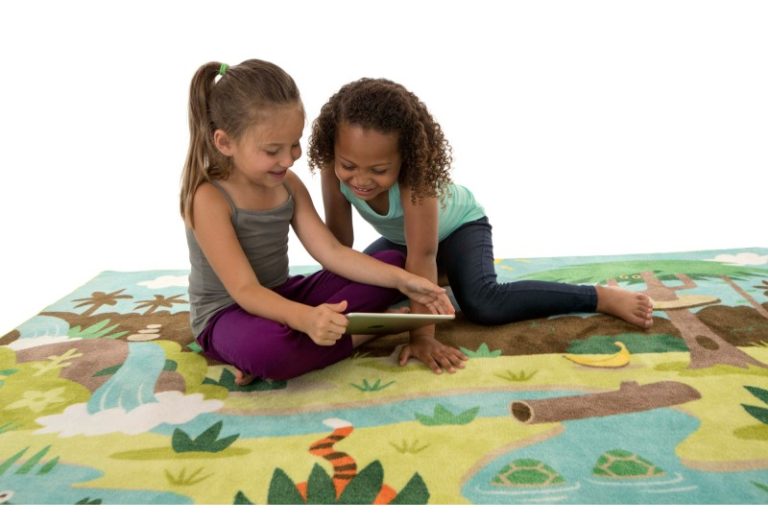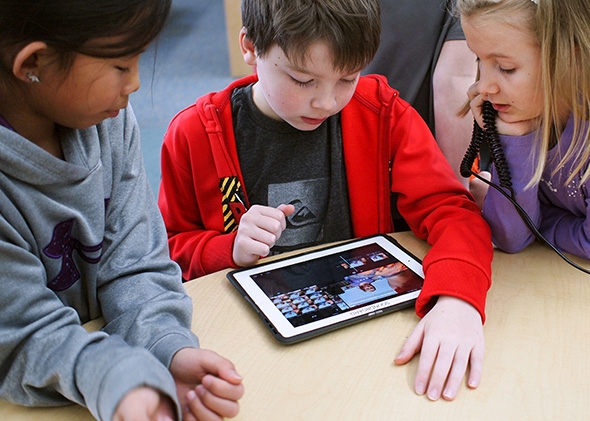Every February, toy companies from across the nation travel to the New York Toy Fair, where all the big names in the toy industry convene to show off the newest, trendiest toys.

Photo by Orbet International
We may not be a traditional toy company, but PopUp Play understands how this generation of kids engages and interacts with toys. We also love seeing the crazy, creative ways toy companies come up with to foster long-lasting play for kids.
This year we’re focusing on tech toys, a genre that has been around for some time, but we feel has yet to find a firm footing in the world of kids. In general, we consider games and products geared for kids that incorporate screens, software, hardware and/or electronics to be “tech toys.” This includes apps, drones, robots and more.
For the past few years, technology in toys has been a novel concept. It has the potential to significantly change the way kids play and has big implications for the future. However, often, tech in toys fell a little flat. It seemed that every company was tossing out some electric, tech-driven version of its product. While some did so in unique and meaningful ways, such as SpinTales, a rug that encourages play based in augmented reality, others fell a little flat, from playballs for your smartphone to hoverboards that seemed cool in theory but ended up being more dangerous than anything. And of course, who could forget about the iPotty fiasco of 2013.

Photo by Spin Tales
We believe that the time has come for tech toys to finally connect with kids in a unique and lasting way on a large scale, and we’re heading to New York Toy Fair to see if this hunch will be proven true. The days of tech for the sake of tech just may be coming to an end.
Of course, we’re anticipating a lot of tech toys at this year’s Toy Fair, just as there has been in years past. But, we think this year, we’re hoping to see some toys that go beyond a basic “tech” classification and instead permanently transform the ways in which kids interact and play. And if Toy Fair London is any indicator, it seems like our hunch just might turn out to be true after all. We’re already on board with drones with a purpose other than hovering over the neighbor’s’ lawn, such as Revel’s selfie drone. Plus, we’re always taken with innovative building toys that inspire kids to think out of the box–especially in 3D, like the 3Doodler Pen, which was also featured are Toy Fair London.
There’s a delicate line to tread with kids’ tech. How much tech is too much tech? And how much is too little? While kids can certainly learn from tech toys in ways older generations never had the opportunity to, screen time and tech reliance are still hot topics for many parents. Tech toys can be used effectively in a number of ways. The key is to root screen time and tech involvement in principles that foster creative and critical thinking, such as an emphasis on STEM or problem-solving. Additionally, digital play can seamlessly be combined with physical play to incite kids to express creativity hands-on.

Photo by Slate
Already, we’ve seen an increase in toys that spur digital and physical play at Toy Fair London and beyond. We’ve caught wind of toy companies, big and small, rolling out toys that combine digital and physical play, such as Fabulous Beasts or Lego Boost, and we have high hopes for other debuting toys and games at this year’s Toy Fair. They just might set the standard for the future of playtime.
Of course, combining digital and physical play isn’t achievable overnight. That’s where PopUp Play comes in: our platform is capable of taking toy companies and beyond to the next level with not only digital-to-physical, but totally custom, on-demand play. Tech in toys may just finally be reaching a place where it’s used effectively for optimal fun, and PopUp Play is helping to spearhead that movement.
We’ll be keeping an eye on this year’s Toy Fair and jumping in on the discussion. Follow along with us on Twitter, where we’ll be posting about some of the coolest toys, trends and upcoming ideas.